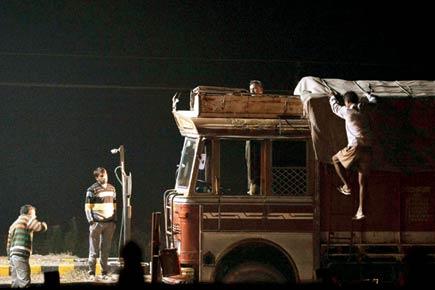Home / News / India News / Article /
Ranjona Banerji: Religious tyranny of food in India
Updated On: 14 September, 2016 07:24 AM IST | | Ranjona Banerji
<p>We, as Indians, sometimes pride ourselves on our ‘tolerance’ but we are, in fact, extremely intolerant of each other’s food habits</p>


Gau Raksha Dal members inspect a truck on a highway in Rajasthan while looking for beef smugglers. File Pic/AFP
 In Michael Pollan’s The Omnivore’s Dilemma, the writer and professor of journalism searches, as the cover says, “for a perfect meal in a fast-food world”. He is excoriatingly honest in this search, as he examines the moral and ethical questions of food habits, trends, choices and taboos.
In Michael Pollan’s The Omnivore’s Dilemma, the writer and professor of journalism searches, as the cover says, “for a perfect meal in a fast-food world”. He is excoriatingly honest in this search, as he examines the moral and ethical questions of food habits, trends, choices and taboos.
Read Next Story




